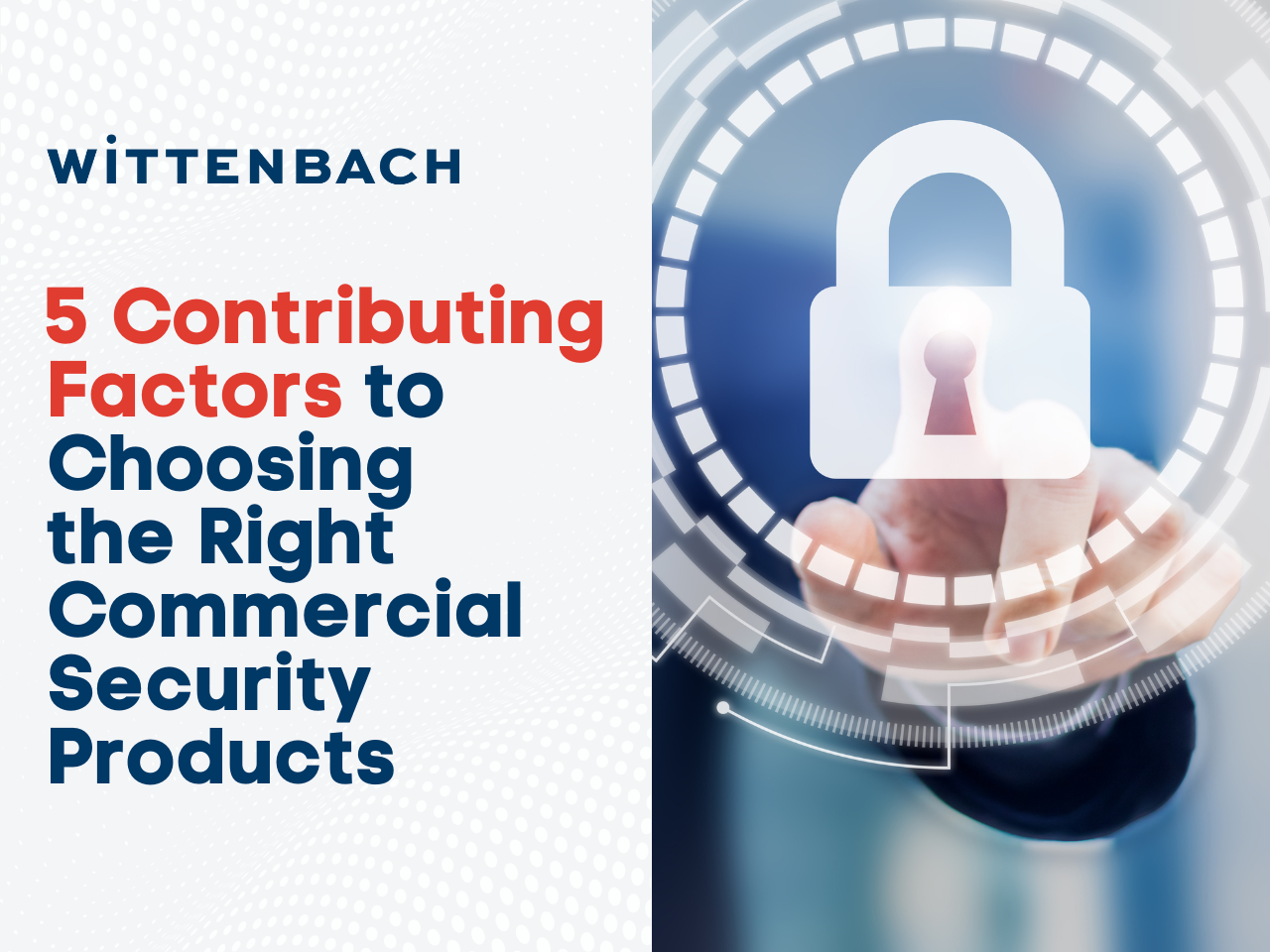More than ever, commercial security is important, and the numbers show it. With a market size of approximately $342.6 billion by 2026, the global demand for commercial security products is on the rise.
The problem is, with so many solutions available, how do you choose what security products are right for your organization?
Here are 5 factors you should consider when purchasing commercial security products.
1. The Scope of Your Business
First, you need to consider the types of security you need. Physical security can include solutions such as access control systems, safes, and vaults. Electronic security solutions can include cameras and intrusion alarms. For a financial institution, you’re going to need a combination of both types of security.
The size of your business will also affect the solutions you need. How much space do you have? How many employees do you have? Have you had any previous security breaches or issues with security? Knowing the answers to these questions will inform what security products you will need.
The scope of your business also extends to your physical assets. Knowing what you have will help you determine what measures are needed to keep files and information secure. Plenty of security breaches still happen the old-fashioned way, via lost or stolen documents that are not properly secured. It’s essential that sensitive files are only accessed by the employee who is working on them.
2. Features and Functionality
The needs of every business type, as well as every financial institution, are going to be different. A reputable security company will do a site survey to understand your unique needs.
If you’re shopping for security products and security solutions, ask the company you are talking to why they chose those specific products over similar brands and models.
Not all equipment is created the same. A security camera seems like a basic part of any security solution, but there are many security camera options available. Traditionally, CCTV (closed-circuit television) cameras were used for video surveillance. However, IP (internet protocol) cameras have replaced them. IP cameras allow for capturing higher-resolution footage. Despite their name, IP cameras don’t require internet access. All that’s required is access to your local area network (LAN).
When talking to a security solutions provider, you should also ask what services they offer in-house. What monitoring service are they using? What’s their reputation? At Wittenbach, we partner with Security Central. Our monitoring operators are carefully screened and trained to assure responsiveness.
You should also look at what training (if any) is available. This should include instructions on how to operate your security solutions, what maintenance is required and how to do it, and how to test your equipment to make sure it’s working properly.
Without proper training from your security provider, your organization is at risk of false alarms being accidentally set off. Some security providers charge for these false alarms, which brings us to the next factor you need to consider…
3. Understand the Actual Cost
If you’re shopping for security solutions piecemeal, you may be surprised at the actual cost of keeping your financial branch secure.
Costly add-ons such as maintenance fees, subscription costs, or hidden fees can quickly add up, especially when using products across multiple brands or service providers.
It can be tempting to save money by opting for a cheaper product, but that’s just adding a potential weak point to your overall branch security.
The old saying, “You get what you pay for” applies here. Don’t always opt for the cheapest option.
A common mistake is choosing a security product or system with little to no monitoring. An unmonitored security system is cheaper than a monitored system, but you lack the ability to have a set of eyes constantly monitoring the area. A monitored system is connected to a central location offsite, which notifies emergency services in the event of an alarm being triggered. A self-monitored system falls somewhere between the two options and may include some features to allow you to monitor your system yourself.
Trying to cobble together a comprehensive security solution from a myriad of different security products and monitoring solutions is also a herculean task that relies on every security product synergizing with other security products.
4. Integration With Other Security Products
We hinted at this earlier when talking about features and functionality, but it can’t be stressed enough that it’s important to find products that integrate and complement each other. Odds are you already have a security system in place. It’s unlikely that you will be replacing the entire system at once.
That’s where interoperability comes in. Interoperability allows you to connect a new security product or system to your existing system. This interoperability allows your financial institution to adapt and customize its system over time.
5. Customer Service and Support
Finally, you need to consider how those security products are supported.
When your security equipment malfunctions, or when you simply need help understanding how to use it, good customer service is essential. Don’t just shop for security products, shop for a fast, responsive technical support team too.
Look for someone who can service all branches in your area. We’ve got the east coast and midwest covered, with hundreds of professionals throughout our service area.
Looking for the Right Set of Commercial Security Products?
For a comprehensive suite of security solutions, contact Wittenbach. We offer electronic and physical security solutions, as well as alarm monitoring with our partner, Security Central. For over four decades, we have been providing security products and solutions to financial institutions of all sizes.
Ready to get started? Contact us today.





